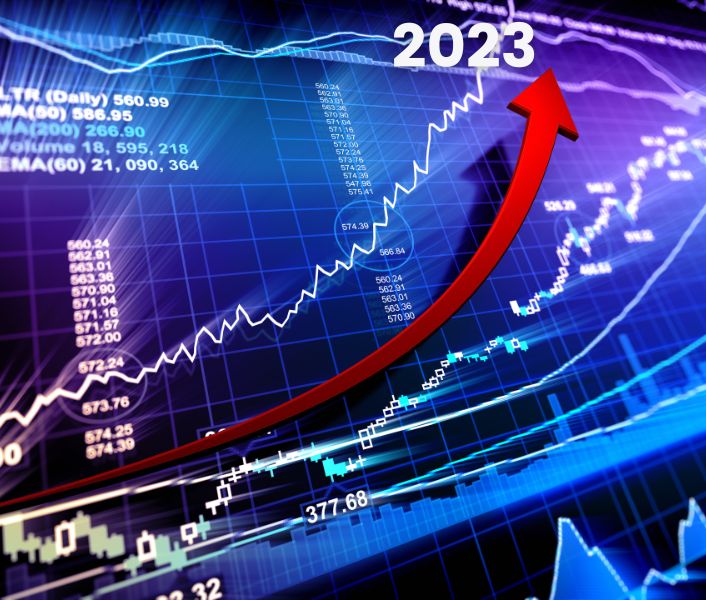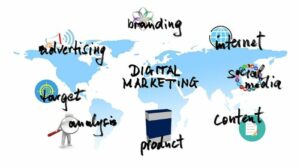Digital marketing has come a long way since its inception in the late 90s. From simple banner ads to complex AI-driven campaigns, digital marketing has changed the way businesses promote their products and services. But what does the future of digital marketing hold? What can we expect to see in the year 2023? In this article, we’ll explore the future of digital marketing and what marketing professionals can expect in the coming years. We’ll look at the trends that will shape the industry, the technologies that will be used, and the impact it will have on businesses. So if you’re curious to know what the future of digital marketing holds, read on!
What to Expect in Digital Marketing in 2023
Digital marketing is constantly evolving, and the changes we can expect to see by 2023 will be far-reaching. Businesses will have to adapt to the new technologies and trends to stay ahead of their competition. Here are some of the most important changes we can expect to see in digital marketing in 2023. First, businesses will have to embrace AI and machine learning for digital marketing. AI-driven technologies, such as natural language processing, will be used to create personalized customer experiences. AI will also be used to optimize campaigns, allowing businesses to target their audiences more effectively. Second, automation of digital marketing will become more commonplace. Automation will enable businesses to streamline their processes and save time, as well as reduce costs. Automation will also help businesses to better measure and track their campaigns, allowing them to make more informed decisions. Third, businesses will have to make use of social media platforms to reach their target audiences. Social media has become a powerful marketing tool, and in the coming years, businesses will have to use it to reach their customers. This means creating content that resonates with their audiences, engaging with them, and building relationships with them. Fourth, personalization of digital marketing will become increasingly important. Businesses will need to tailor their campaigns to their target audiences, as this will allow them to create more effective campaigns that will drive conversions. This will involve using data to understand customer preferences and behaviors, and using this information to create targeted campaigns. Finally, video content will continue to be a powerful tool for digital marketing. Videos are highly engaging and allow businesses to tell their stories in an engaging way. Videos can also be used to promote products and services, as well as drive conversions.
AI and Machine Learning for Digital Marketing
AI and machine learning are two technologies that are set to revolutionize digital marketing in the coming years. AI-driven technologies, such as natural language processing, can be used to create personalized customer experiences. This means businesses can tailor their campaigns to their target audiences, making them more effective and driving more conversions. AI can also be used to optimize campaigns, allowing businesses to target their audiences more effectively. AI can analyze data to identify patterns and make recommendations that can help businesses improve their campaigns. AI can also be used to automate processes, allowing businesses to save time and reduce costs. Machine learning can also be used to improve digital marketing campaigns. Machine learning algorithms can be used to analyze data and identify trends, allowing businesses to adjust their campaigns accordingly. Machine learning can also be used to automate processes and improve customer segmentation, allowing businesses to target their audiences more effectively.
Automation of Digital Marketing
Automation is a key trend in digital marketing, and it is set to become even more important in the coming years. Automation will enable businesses to streamline their processes and save time, as well as reduce costs. Automation will also help businesses to better measure and track their campaigns, allowing them to make more informed decisions. Automation can also be used to personalize campaigns, as it can help businesses to segment their audiences and target them more effectively. Automation can also help businesses to optimize their campaigns, as it can analyze data and identify opportunities for improvement. Finally, automation can be used to automate tedious tasks, such as sending emails or scheduling posts, allowing businesses to focus on more important tasks.
Increased Use of Social Media Platforms
Social media has become a powerful marketing tool, and in the coming years, businesses will have to use it to reach their customers. Social media platforms, such as Facebook, Instagram, and Twitter, can be used to create content that resonates with their audiences, engage with them, and build relationships with them. Businesses will also have to utilize social media advertising to reach their target audiences. Social media advertising platforms, such as Facebook Ads and Twitter Ads, can be used to create targeted campaigns that are tailored to their audiences. This will allow businesses to reach their target audiences more effectively and drive more conversions. Finally, businesses will have to make use of social media analytics to track their campaigns and measure their success. Social media analytics platforms, such as Sprout Social and Hootsuite, can be used to track key metrics, such as engagement and reach, and measure the success of campaigns.
Personalization of Digital Marketing
Personalization of digital marketing is an important trend that is set to become even more important in the coming years. Businesses will need to tailor their campaigns to their target audiences, as this will allow them to create more effective campaigns that will drive conversions. This will involve using data to understand customer preferences and behaviors, and using this information to create targeted campaigns. For example, businesses can use customer data to create personalized emails that are tailored to their customers’ needs and interests. They can also use data to create targeted advertising campaigns that are more likely to be successful. Businesses will also need to use data to create more customized customer experiences. This will involve using data to anticipate customer needs and create experiences that are tailored to their preferences. This could involve creating personalized product recommendations, tailored content, and more.
Use of Video Content
Video content will continue to be a powerful tool for digital marketing in the coming years. Videos are highly engaging and allow businesses to tell their stories in an engaging way. Videos can also be used to promote products and services, as well as drive conversions. Businesses will also have to make use of video ads to reach their target audiences. Video ads can be used to create targeted campaigns that are tailored to their audiences. This will allow businesses to reach their target audiences more effectively and drive more conversions. Businesses will also have to utilize video analytics to track their campaigns and measure their success. Video analytics can be used to track key metrics, such as views, engagement, and conversions, and measure the success of campaigns.
Augmented Reality in Digital Marketing
Augmented reality (AR) is a technology that is set to revolutionize digital marketing in the coming years. AR can be used to create immersive and engaging experiences that are tailored to customers’ needs and interests. Businesses can use AR to create interactive experiences, such as virtual showrooms and product demos. This can help businesses to engage their customers and promote their products and services in an engaging way. Businesses can also use AR to create gamified experiences, such as virtual treasure hunts and quizzes. This can help businesses to engage their customers, build relationships with them, and drive conversions.
Blockchain and Cryptocurrency in Digital Marketing
Blockchain and cryptocurrency are two technologies that are set to revolutionize digital marketing in the coming years. Blockchain can be used to create immutable digital ledgers that can be used to track digital transactions. This can help businesses to track customer data, measure their campaigns, and make more informed decisions. Cryptocurrency can also be used to create secure and transparent digital payments. This can help businesses to streamline their payment processes and reduce costs. It can also help businesses to create more secure customer experiences and build customer trust.
Conclusion
Digital marketing is constantly evolving, and the changes we can expect to see by 2023 will be far-reaching. Businesses will have to adapt to the new technologies and trends to stay ahead of their competition. AI and machine learning, automation, social media, personalization, video content, augmented reality, blockchain, and cryptocurrency are all set to revolutionize digital marketing in the coming years. By understanding these trends and adapting to them, businesses can create more effective campaigns that will drive conversions and help them stay ahead of the competition.




